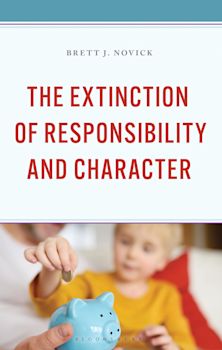- Home
- ACADEMIC
- Education
- Classroom Practice
- Teaching Social Justice
Teaching Social Justice
Critical Tools for the Intercultural Communication Classroom
Teaching Social Justice
Critical Tools for the Intercultural Communication Classroom
You must sign in to add this item to your wishlist. Please sign in or create an account
Description
The intercultural communication classroom can be an emotionally and intellectually heavy place for many students and teachers. Sensitive topics arise and students must face complex issues with intellectual curiosity and collegial respect. To navigate the precarious waters of intercultural communications, teachers need an intentional approach to foster meaningful discussion and learning.
This pedagogical guide presents conceptual overviews, student activities, and problem-solving strategies for teaching intercultural communication. The authors navigate eight categories of potential conflict, including: communicating power and privilege, community engagement in social justice, and assessing intercultural pedagogies for social justice. In addition to empirical studies and the authors’ own classroom experiences, the book features the personal narratives of junior and senior intercultural communication teacher-scholars whose journeys will encourage and instruct readers towards more fulfilling teaching experiences.
Product details
| Published | Aug 15 2021 |
|---|---|
| Format | Ebook (Epub & Mobi) |
| Edition | 1st |
| Extent | 198 |
| ISBN | 9781538121368 |
| Imprint | Rowman & Littlefield |
| Illustrations | 10 b/w illustrations; 8 tables |
| Publisher | Bloomsbury Publishing |
About the contributors
Reviews
-
Following Paolo Freire’s philosophy of education “as a co-created process with the potential for fundamental transformation” and “not as a transactional process” (p. 3), Lawless and Chen propose that intercultural communication (IC) contributes to teaching social justice. The authors describe their own backgrounds and influences, stating that their “approach to teaching intercultural communication is guided by principles of critical communication pedagogy” (p. 3). Because of the intellectual and emotional labor involved, they recommend that IC instructors practice self-care strategies such as meditating and reflecting, getting nourishment and rest, and taking regular walks or drives, among other things. The chapters follow the template of an IC topic, presenting key concepts, theorists, and challenges as well as pedagogical activities to address these challenges. The authors also include a table of questions to consider in determining course content. Each chapter has a social justice focus, such as building alliances, community engagement, and thinking and acting globally. The text includes appendixes of critical IC activities and a glossary of terms. Suitable for scholars and graduate programs in communication studies. Recommended. Graduate students and faculty.
Choice Reviews
-
Lawless and Chen walk the reader through teaching intercultural communication from course development to final assessment. They provide experience-based tools for creating a social justice and action-oriented learning environment. This book is a must-have for anyone teaching communication from a critical perspective.
Alberto González, Bowling Green State University
-
A very important and original contribution to the intercultural communication pedagogy toolkit. Each chapter is grounded in a conceptual orientation and continues with very practical issues, solutions, examples, and personal stories from the field.
Sara DeTurk, University of Texas at San Antonio
-
Teaching Social Justice highlights current, relevant scholarship on critical intercultural communication and the challenges that exist with teaching from this perspective.
Elizabeth Root, Oregon State University

ONLINE RESOURCES
Bloomsbury Collections
This book is available on Bloomsbury Collections where your library has access.



































